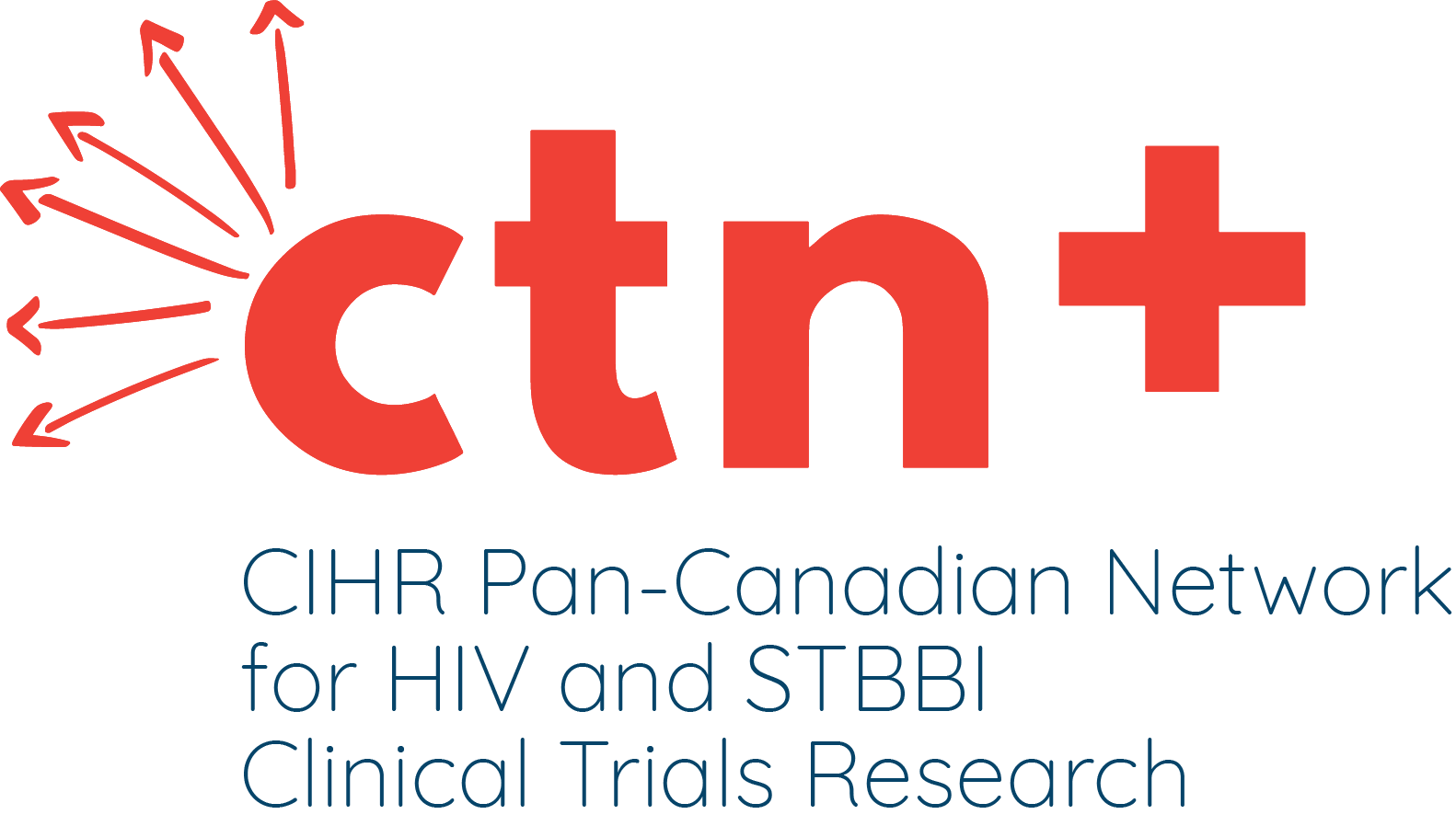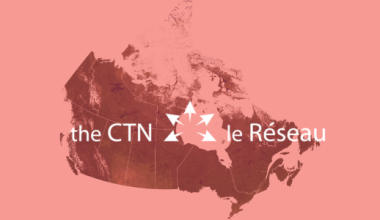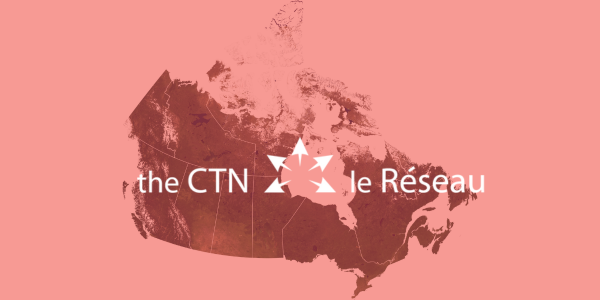
Left to right: Dr. Carmen Logie, Yasmeen Persad, Dr. Ashley Lacombe-Duncan
March 31 marks the International Transgender Day of Visibility, an annual event dedicated to celebrating transgender (trans) people and their contributions to society, while raising awareness of the discrimination they face.
At the CTN, we are committed to improving the health and lives of all Canadians, including members of the LGBTQIA2S+ community. One CTN study that set out to do just that was the recently concluded CTN 317: Transgender Education for Affirmative and Competent HIV and Healthcare (TEACHH) study, a collaborative, trans-led project that expanded upon existing HIV-related stigma reduction interventions and trans competency trainings. The main study objective was to develop a workshop specific to the relationship between gender identity and HIV.
We sat down with Principal Investigator Dr. Carmen Logie and co-investigators Dr. Ashley Lacombe-Duncan and Yasmeen Persad to chat about TEACHH and discuss other challenges trans people face and how we, as a society, can recognize and address them, particularly in the context of health care.
“You need to see the humanity in people. Trans people are just the same. We have hopes and dreams, friends and families, troubles to go through, pandemics to survive. The lack of seeing our shared humanity is a really big issue.” – Yasmeen Persad
We began our conversation around stigma, a topic in itself that could be the focus of hours-long discussion. “Trans stigma is just one piece of the puzzle for trans people. There are intersections with racism, sex work stigma, HIV stigma, drug use stigma, immigration status, and much more,” explains Dr. Logie, an associate professor of social work at the University of Toronto. “It’s hard to really determine precisely how stigma has changed over the years because of this intersectionality. Ultimately, stigma looks different for different people.”
Persad, a trans activist who’s been providing education and training around LGBT-related issues for the past decade, summed up how this intersectionality can play out in day-to-day life. “Sometimes, I don’t know if I’m experiencing racism or transphobia, or some other sort of -ism. That’s why it is challenging to measure what type of stigma we experience, and navigating these experiences on a daily basis is actually quite difficult.”
One of the main goals of the TEACHH study was to address stigma and barriers to HIV care. The research team conducted focus groups with trans women to discuss sexual health, HIV, and access to care. There were further semi-structured interviews with service providers to explore their perceived barriers and facilitators for delivering HIV prevention and other services to trans women. It was hoped that comparing perspectives of both groups could promote a shared vision for achieving health equity.
“To tackle the stigma, you have to meaningfully engage with the people impacted by it. The interventions have to come from people who have those lived experiences. That is why I think studies like TEACHH and our other study, TRANScending Love, are so powerful.” – Dr. Carmen Logie
During the researchers’ conversations with focus group participants, it became clear that interventions were needed to close the major gaps in providers’ knowledge and improve how they treat trans women living with HIV. Some changes could be made at the individual provider level, but systemic change is also needed, such as anti-discrimination policies and training that accounts for intersectionality to reduce biases.
“It’s not just about medical care,” explains Dr. Lacombe-Duncan, now an assistant professor of social work at the University of Michigan. “It’s also about social context and stigma, and how to build relationships. These insights really informed the next steps of Yasmeen delivering training to service providers on trans-affirming practices, at both the individual and organizational level.”
Trans-affirming practices can include teaching providers that names and pronouns matter, and reminding them to not make assumptions, be respectful in any interactions, be informed, and be an ally.
So, who should receive training around trans-affirming care provision and when?
“Everyone needs the training,” says Persad. “Frontline workers, learners, such as medical and social work students, mental health workers, housing service providers… It’s hard to say one needs the training before, or more than, the other because these services are so interconnected. For example, if a trans person receives good mental health care, it could help stabilize their employment and housing. If they are more stable, they may take more control over their finances and develop more connections with others.”
It’s not just service providers we need to consider when thinking about barriers to care; it can also be the physical building that houses the services. Some washrooms in AIDS Service Organizations (ASOs), for example, still have large gaps so you can see into stalls and some are still very gendered.
And what about transport? A lot of health care centres and ASOs are located in large urban centres, making them hard to access for people who live in smaller communities or rural areas. There is also the issue of safety and cost of transport to the service site. Public transportation is not safe for everybody, including many trans people. Some trans people may have been subject to employment discrimination, so the extra cost of travelling for appointments just isn’t feasible.
“If someone is likely to need to ride public transport to access your clinic or centre, think about being flexible with the opening hours so people aren’t travelling when it’s really busy or crowded. Perhaps you could also provide alternative transport options,” suggests Dr. Logie. “That is just being sensitive to the privilege that many cisgender people have.”
“We must do our best as cisgender people. We will make mistakes, but acknowledge them, apologize, learn how to do better, and move forward. As informed as you may be, not all trans people are the same. They may not use the same language or feel the same things are affirming. When providing care to trans people, go in informed and take the time to get to know people for who they are.” – Dr. Ashley Lacombe-Duncan
Whether you are a service provider, researcher, or someone who is generally interested in learning more about positively engaging with the trans community, there is one vital thing to do. Listen.
“Listen to trans people. Listen to what they need and move forward in that direction. Often, people come in with their own intentions, which are not bad, but are sometimes not what folks need. Listening is key,” encourages Persad.
Dr. Logie adds, “Cisgender people need to do their own research and learn about their own privileges as cisgender people. There are video series, podcasts, and other online resources (listed below). Take the time to listen to the stories, voices, and experiences of trans people. You don’t want to always put the onus of educating and teaching on the person who is experiencing marginalization. This information is already out there. We just need to go and take the time and effort to learn.”
Are you a researcher thinking about engaging with trans people? Check out the following advice from Persad, Dr. Logie, and Dr. Lacombe-Duncan:
- Use a lens of love and hope from the beginning
- Learn about the community and build a relationship
- Ascertain the needs and priorities of the people you are engaging with; look at the social issues
- Understand your power and privilege
- Give back. Offer appropriate renumeration and present the work back to the participants
- Consider who will present the research. Will the community be involved?
- Be flexible
“Continuously ask yourself these questions,” says Dr. Lacombe-Duncan. “What is my role in this work? Am I the right person to do it? Why am I doing this work? Was I asked or invited into this space? It is vital to have these conversations with the community. They’re not always easy, but they’re so very important.”
Additional resources:
- Video: Trans Women of Colour Video Series Introduction
- Video: Speaking to the Experiences of being a Trans Woman Newcomer in Toronto, Canada
- Video: Speaking to the Experiences of Self Love among Trans Women of Colour in Toronto, Canada
- Video: Speaking to the Experiences of Health Care Access and Barriers among Trans Women of Colour in Toronto
- Video: Speaking to the Experiences of Stigma, Mental Health, and Resilience among Trans Women of Colour in Toronto, Canada
- Podcast: How to Use Your Voice to Support Trans People (Dr. Carmen Logie and Yasmeen Persad)
- The Trans Women HIV Research Initiative
- World Professional Association for Transgender Health: Standards of Care






